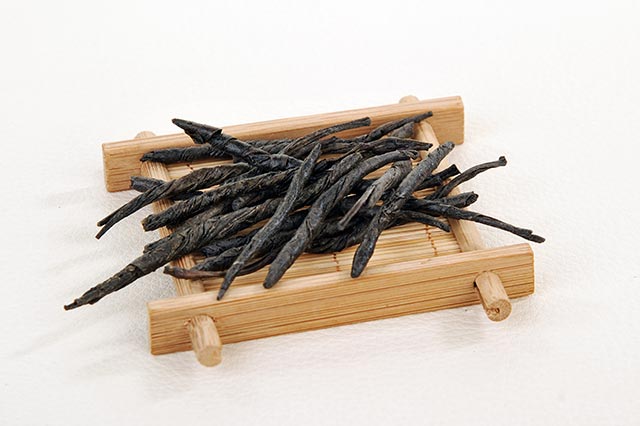Drinking kudingcha can help lower your risk of colitis
12/02/2019 / By Melissa Smith

Researchers from the Chongqing University of Education in China looked at the potential of functional foods – in particular, kudingcha or kuding tea – to treat ulcerative colitis. They found that kuding tea could help treat and prevent ulcerative colitis without side effects.
Kuding tea is a bitter-tasting tea which is popular in China. It is used to quench thirst, remove phlegm, refresh the mind, and enhance eyesight.
Ulcerative colitis is an inflammatory bowel disease that could increase your risk of colon cancer. It causes long-lasting ulcers along the surface of the large intestine and rectum, resulting in a feeling of urgency but the inability to defecate, as well as bleeding, debilitating pain, diarrhea, fatigue, fever and weight loss, among others. The disease’s symptoms can be life-threatening and can cause growth retardation in children. (Related: Common food additive linked to colon cancer and intestinal inflammation.)
While standard treatments are available for ulcerative colitis, they cause side effects after long-term use. These side effects made the researchers look at the ability of kuding tea in treating the condition. To do so, they examined five groups of mice: a normal group, model group, sulfasalazine (a drug for ulcerative colitis) group, low-concentration kuding tea polyphenol group and high-concentration kuding tea polyphenol group.
The normal and model groups received their normal diets, but not any treatment. The remaining groups received sulfasalazine, low-concentration kuding tea polyphenols and high-concentration kuding tea polyphenols, respectively, and were treated with lavage to induce colitis. Plant polyphenols, like those in kuding tea, are active ingredients that can scavenge harmful free radicals and inhibit inflammation.

The researchers found that treatment with kuding tea polyphenols attenuated colitis and inhibited the shortening of the colon. In addition, it improved the colon weight/length ratio of mice. It also significantly reduced the levels of oxidative stress and increased antioxidant activities in mice colon tissues with colitis. Overall, the researchers concluded that kuding tea can effectively prevent colitis and can be used as the raw material for functional food because of its polyphenols that have potent antioxidant effects.
Kuding tea could protect against metabolic disorders
A study published in the journal PLOS One found that kuding tea could also be used to prevent and treat metabolic disorders. In this study, researchers from the Shanghai University of Traditional Chinese Medicine in China looked at the effects of kuding tea on metabolic disorders in mice induced by high-fat diets.
The researchers conducted two experiments: a preventive experiment and a therapeutic experiment. For the preventive experiment, they fed mice with a standard diet, high-fat diet, and high-fat diet with kuding tea for five weeks.
For the therapeutic experiment, they fed mice with a high-fat diet for three months. Then, they treated mice with 50 milligrams per day per kilogram (mg/day/kg) for two weeks. The researchers measured the animals’ body weight and daily food intake amounts. At the end of treatment, they assessed adipocyte images using a scanning electron microscope. They also measured the mice’s fasting blood sugar, glucose tolerance, serum lipid profile and lipids in the livers.
Based on the results of the preventive experiment, the administration of kuding tea prevented body weight gain and reduced the size of fat cells. It also reduced serum triglyceride, cholesterol, low-density lipoprotein (LDL) cholesterol, fasting blood glucose and glucose tolerance. In the therapeutic experiment, treatment with kuding tea reduced the size of white fat cells, serum triglyceride levels, and fasting blood glucose levels in obese mice.
Overall, the researchers concluded kuding tea exhibited preventive and therapeutic effects on metabolic disorders in mice induced with high-fat diets. They suggested that kuding tea could be used as a dietary treatment and a potential anti-obesity and lipid-lowering agent.
Sources include:
Submit a correction >>
Tagged Under:
alternative medicine, disease treatments, food cures, food is medicine, functional food, herbal medicine, Herbs, kuding cha, natural cures, natural medicine, prevention, remedies, research
This article may contain statements that reflect the opinion of the author





















